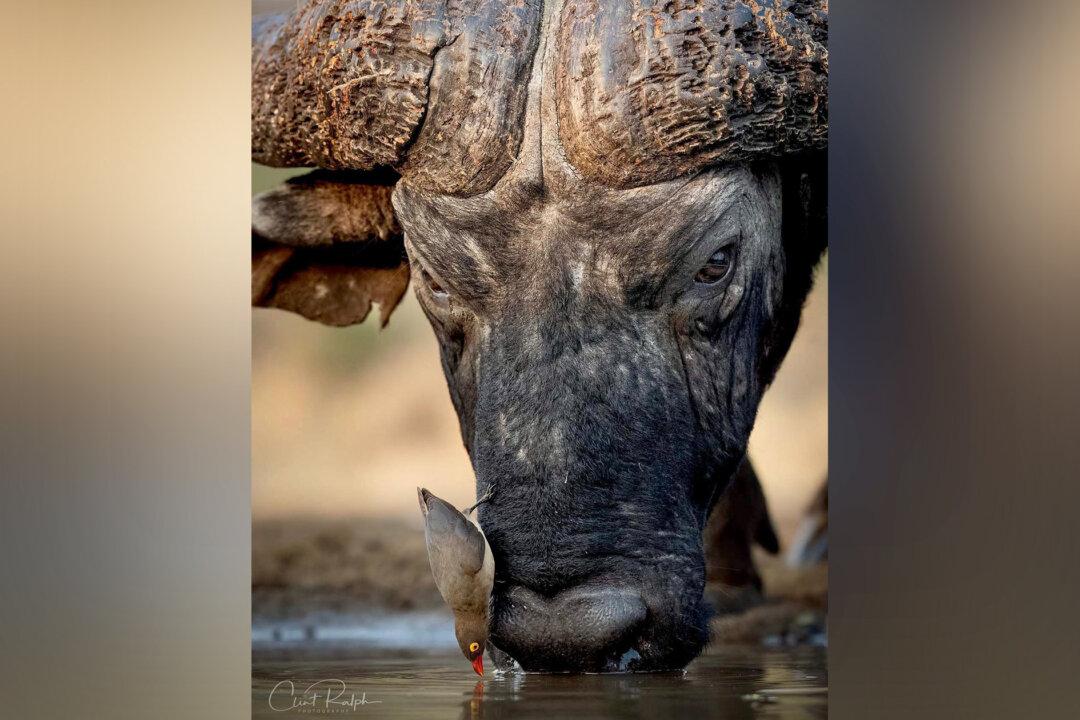A wildlife photographer who likes to “think outside the camera” was in the right place at the right time when he snapped an amazing shot of a red-billed oxpecker bird landing on a buffalo’s face to drink water at an African lakeside.
Clint Ralph, 60, lives in Pretoria, South Africa, where he owns a waste management and recycling company. An established wildlife photographer, he also runs a safari company to share his knowledge in the field with other budding photographers.





